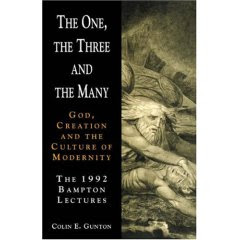Heaven in ordinary: George Herbert's poetics
——
Now if I asked you, what is George Herbert’s most characteristic way of talking about God, I wonder what you’d immediately think of? Story or narrative? Positive doctrinal statement? Negation? No, surely the first thing that comes to mind is Herbert’s conceits (a technical term for extended, elaborate metaphors). He takes a small, seemingly insignificant item from everyday life – something from around the home – and turns it into a delicate picture of God’s activity, God’s involvement.
In one of his poems, the Sundays of our lives are likened to beads threaded on a string, adorning us and making us beautiful for God. In another poem, Christ’s graveclothes in the empty tomb (he loves writing about clothes) are a handkerchief with which to dry our tears when we’re sad and grieving:
Arise, Arise;
And with his burial-linen dry thine eyes:
Christ left his grave-clothes, that we might, when grief
Draws tears, or blood, not want an handkerchief.
In ‘Holy Scriptures’ (I), Herbert compares the flat pages of scripture to God’s gracious condescension to the littleness of humanity. He says of scripture:
heav’n lies flat in thee,
Subject to ev’ry mounters bended knee.
Again, a homely picture based on a very simple, childlike observation: God’s word comes to us ‘flat’, and that means we can climb up to God by bending ourselves down low. With even the smallest effort, we can mount up to heaven, since it lies flat in holy scripture. A rather different picture from the mystical ascent of apophatic theology!
In another poem, ‘Jesu’, the human heart is like a children’s word puzzle: the letters are broken apart by affliction and scattered across the floor. When pieced back together, they spell both ‘I ease you’ (when the letters are spelled out individually: I-ES-U), and ‘JESU’ (when the letters are read all together). It’s a playful conceit, a little parable of God’s loving involvement with our lives – and with our language. (There’s a similar word-game in the poem ‘Colossians 3:3’, where the biblical text, my life is hid with Christ in God, is literally hidden in the lines of the poem, just as God’s work is hidden in the ordinary story of our lives.)
For a somewhat weirder conceit, consider ‘The Bag’. Here, the wound in Christ’s side is compared to a postman’s bag – if we want to ‘send or write’ anything to God, we can put our letters in this bag, the hole in Christ’s side, and like a reliable postman Christ will deliver our mail to God. He takes good care of our letters, placing them – here the conceit gets even stranger – placing them close to his heart:
If ye have any thing to send or write,
I have no bag, but here is room:
Unto my Fathers hands and sight,
Believe me, it shall safely come.
That I shall mind, what you impart;
Look, you may put it very near my heart.
Again, this is serious reflection on the way God becomes involved in human language. In Schwartz’s terms, we might even call this ‘language theory’, or poetics. But it takes the form not of positive theology or of negative theology, but of what Herbert himself calls ‘plainness’. Something like parable: a simple, rather humorous observation of daily life in an English village.
I won’t go on multiplying examples, since you can find these kinds of conceits on virtually every page of Herbert. It is his most characteristic speech-act, quite distinct from either apophatic or cataphatic strategies. Like the Jesus of the synoptic Gospels, Herbert can speak about God without so much as mentioning the word ‘God’. His poetry gives the impression that we can find God pretty much anywhere, that we can speak of God in virtually any language, especially the language of ‘plainness’, simplicity, the ordinary. ‘Heaven in ordinary’, as Herbert calls it – that is his language theory.











